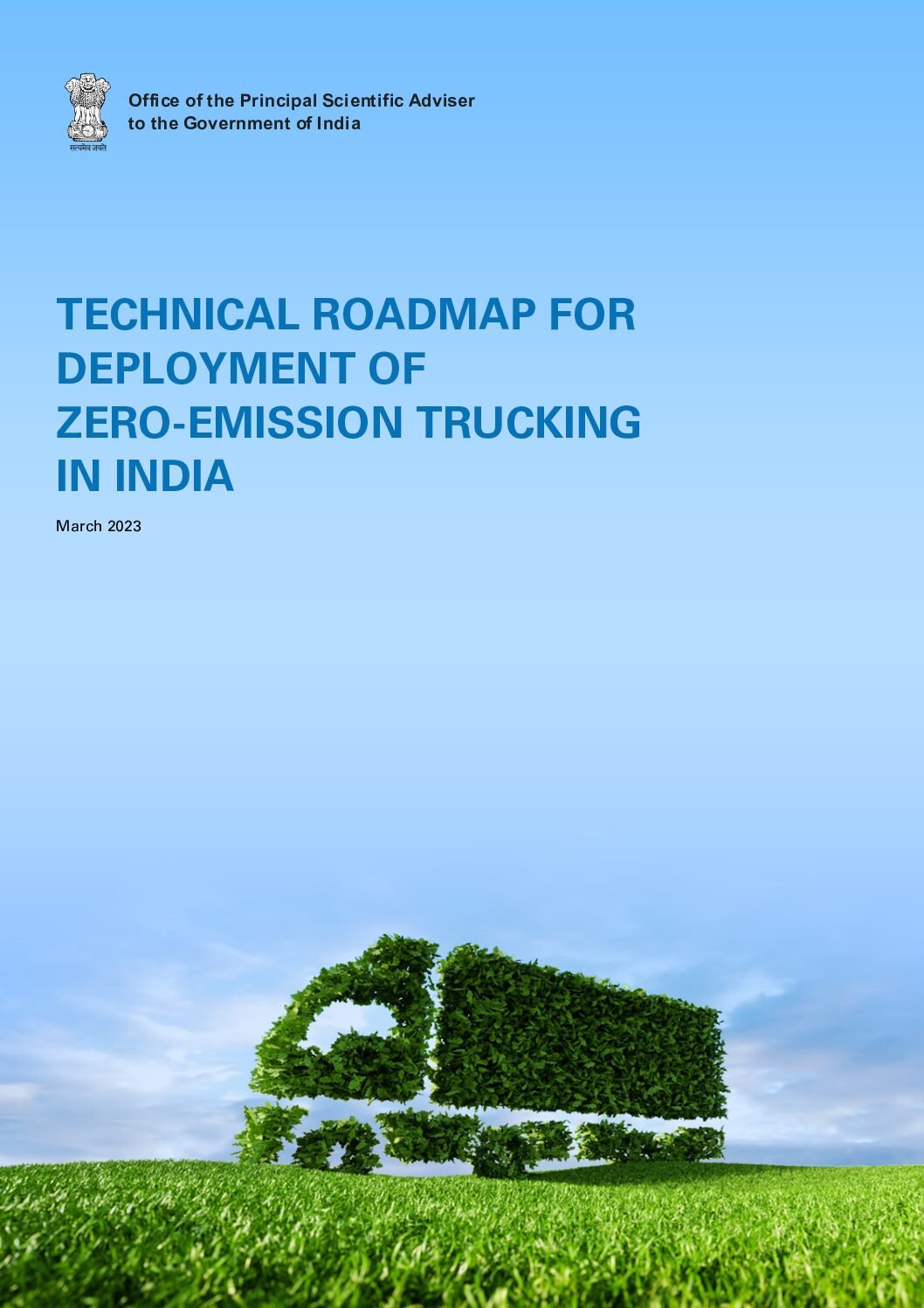
December 9, 2024 | New Delhi
In a significant stride towards sustainable transportation, the Office of the Principal Scientific Adviser (O/o PSA) to the Government of India has released a comprehensive Technical Roadmap for the Deployment of Zero-Emission Trucking (ZET) in India. This initiative aims to revolutionize the country’s freight sector by transitioning to Battery Electric Trucks (BETs) and Fuel Cell Electric Trucks (FCETs), aligning with India’s commitment to reduce its GDP’s emissions intensity by 45% by 2030.
Strategic Objectives
The roadmap outlines key technical actions essential for the successful implementation of ZET:
- Data Acquisition and Analysis: Implementing mechanisms to collect and analyze real-time data from existing trucks to inform decision-making.
- Product Development and Standardization: Accelerating the development of BETs and FCETs by adopting national standards for critical technologies.
- Pilot Implementation Tools: Designing tools to ensure effective pilot programs and continuous improvement.
- Regulatory Framework Enhancement: Updating regulations and standards to facilitate the integration of ZET technologies.
Key Initiatives
1. Field Research on BETs and FCETs
Extensive field research will be conducted to understand the unique requirements of India’s trucking industry. This includes:
- Identifying major freight corridors.
- Collecting data on traffic density, cargo types, and driving patterns.
- Analyzing energy consumption to optimize powertrain design.
2. Development of Overhead Automated Charging Devices (OH-ACD)
To support BETs, the roadmap proposes the development of OH-ACDs with features like:
- Fully automated connection mechanisms.
- High current ratings (500–600 A) for efficient charging.
- Interoperability and compliance with emerging national standards.
3. Regulatory Updates
The roadmap emphasizes the need to update the Central Motor Vehicles Rules (CMVR) to include:
- Vehicle-side requirements for BETs and FCETs.
- Standards for battery communication protocols to ensure interoperability.
- Safety regulations for high-power charging methods.
4. Innovation in Motor Technology
Recognizing the dependence on rare-earth materials for Permanent Magnet Synchronous Motors (PMSMs), the roadmap explores alternatives like:
- Induction Motors (IM)
- Synchronous Reluctance Motors (SyRM)
These alternatives aim to reduce supply chain vulnerabilities and promote indigenous manufacturing.
Financial and Timeline Overview
An estimated budget of ₹850 crores has been allocated over four years, covering:
- Development and homologation of vehicles.
- Establishment of robust testing facilities.
- Execution of pilot programs across selected corridors.
Implications for Industry Stakeholders
The roadmap invites collaboration among:
- Automotive OEMs: To innovate and produce compliant BETs and FCETs.
- Infrastructure Providers: For setting up charging stations and hydrogen refueling points.
- Technology Developers: To focus on battery technologies and alternative motor designs.
- Policy Makers: To facilitate regulatory changes and provide incentives.



